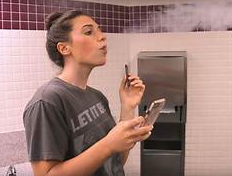Innovative technology aims to deter vaping in schools amidst growing concerns over student usage.
In response to a surge in vaping incidents among students in Singapore, tech companies are introducing advanced sensors to detect e-vaporisers in schools. Motorola Solutions launched its Halo Smart Sensor in September 2024, which can monitor various environmental data, including air quality, particulates, carbon monoxide, and vaping chemicals. This sensor, about the size of a saucer and priced at around $2,000, is installed in areas with limited supervision, such as school toilets and classrooms. It can send alerts to security personnel or teachers when vaping is detected, allowing for timely intervention.
Vaping has become a significant issue in Singapore, with the number of people caught with e-cigarettes rising sharply. In 2023, nearly 8,000 individuals were caught using or possessing vaporisers, a 60% increase from the previous year. Among them, over 700 were students, prompting a stronger push by the Ministry of Health (MOH) and Health Sciences Authority (HSA) to address the problem. The government has been working with the Ministry of Education and the Health Promotion Board to raise awareness about the dangers of vaping and its legal consequences.
Despite strict regulations banning the importation, possession, and use of vaporisers, students continue to hide e-cigarettes in places like false ceilings and behind mirrors. Teachers, overwhelmed with their responsibilities, have expressed that technology like the Halo sensor could significantly aid in reducing vaping incidents. Similar systems have been successfully implemented in schools in the United States and the UK, where sensors have helped detect and discourage vaping behavior.
In addition to sensors, local authorities have launched educational campaigns, reaching nearly 37,000 students with messages about the harms of vaping. Moreover, counselling and support are provided to students caught vaping, helping them quit the habit. The rising number of vaping-related cases highlights the urgent need for both technological and educational interventions to combat this growing issue among young people.


